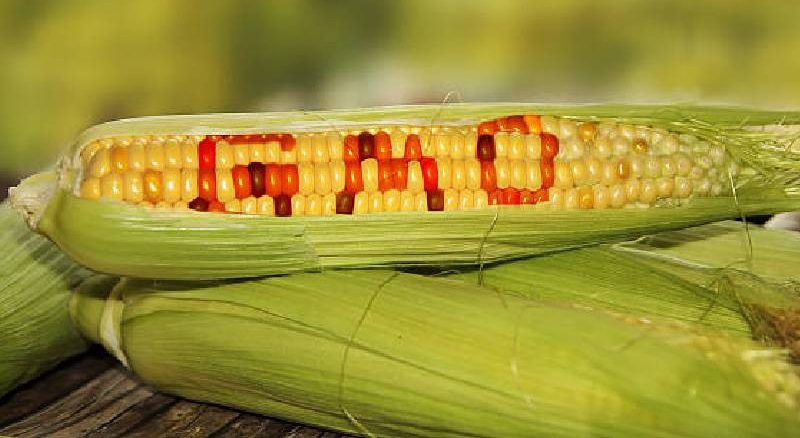Food safety experts have issued warnings, urging the federal government to adopt a total ban on commercial use of Genetically Modified Organisms (GMOs).
The call came amidst multiple concerns, including risks to public health, environmental hazards, threats to food security and the impact of multinational seed corporations on Nigeria’s seed sovereignty.
In Nigeria, GM crops currently approved include; Bt cowpea – a pest-resistant variety, TELA maize – a drought-tolerant and insect-resistant variety and Bt cotton – a pest-resistant crop, significant to Nigeria’s textile industry.
However, months after their release into the market, conversation surrounding GMOs continues to stir debate among the community of researchers with some experts calling on the federal government to invest in organic, heirloom and locally adapted crop varieties as alternatives.
While proponents of the GM crops argued that their adoption would improve yields, increase farmers’ profitability and address food insecurity, critics of the development have joined in the call for critical evaluation of both the benefits and potential risks of GMOs as part of Nigeria’s broader policy on food security.
According to the World Health Organisation (WHO) GMOs currently available on the international market have passed safety assessments and are not likely to be a risk to human health and environment.
In July, 2024, the federal government allayed fears around GM crops in Nigeria, insisting that they are safe and pose no harm to humans, animals and the environment.
Coalition of Nigeria’s agricultural research bodies led by the Agricultural Research Council of Nigeria (ARCN) stated that there was no cause for alarm over the crops.
backed by Nigeria’s Biosafety Act of 2015, both ARCN executive-secretary, Prof Garba Sharubutu and director-general of the National Biotechnology Research and Development Agency (NBRDA), Prof Abdullahi Mustapha, maintained that GM technology in Nigeria was developed to improve crop productivity, including resilient to climate change and farming challenges after stringent safety assessments.
Despite these assurances, opposition remains strong among certain stakeholders about GMOs consumption.
The House of Representatives recently called for a suspension of GMOs until a comprehensive investigation into potential health risks is completed.
A prominent figure in biotechnology and a fellow at Hubei Bio-Tech, Wuhan, China, Prof Qrisstuberg Amua, maintained a balanced yet cautious stance on GMOs especially in terms of their use in food production.
Prof Amua, who is also the executive-director, Centre for Food Safety and Agricultural Research (CEFSAR) warned that with most GMO seeds patented by multinational corporations, Nigerian farmers would have to rely on these companies for seeds each season, potentially escalating costs and reducing farmers’ autonomy and put Nigeria’s food sovereignty at stake.
“CEFSAR emphasises that GMOs should only be introduced after thorough, independent scientific testing to ensure they are safe for human consumption and do not pose adverse health effects or environmental harm.
GMO cultivation may impact biodiversity. CEFSAR advocates for practices that preserve Nigeria’s rich agricultural diversity.
Farmers and governments of other countries that have previously used them, and are now reversing their adoption and use; and resistance to pests (which also comes with a heavy collateral cost to human health), they may not entirely address these broader systemic issues,” Prof Amua said.
Another expert, a professor of Agronomy from the University of Calabar, Prof Uche Amalu, expressed concerns over Nigeria’s adoption of GMOs, cautioning that these could threaten the country’s agricultural sovereignty, environmental safety and public health.
Prof Amalu stressed that Nigeria’s agricultural heritage remains under threat as foreign-produced seeds gain ground while urging the federal government to prioritise indigenous crops for food security.
He pointed out that many genetically modified seeds are not reusable, forcing farmers to purchase new seeds each planting season, a practice he described as “exploitative.”
Professor Amalu recommended alternative solutions rooted in Nigeria’s agricultural history, such as enhancing indigenous crop varieties.
He urged the government to invest in research and development focused on improving traditional crops and supporting indigenous seed multiplication techniques, like those used with yam varieties, to bolster both yield and resilience.
He said, “The federal government should beware of GMO foods, invest in our local seeds and seedlings to preserve both our health and our agricultural independence.
“The only alternative, is to find a way of reducing the intake of GMO food, avoiding GMO seeds and seedlings, and going back to our indigenous crops.”
In contrast, Nigerian farmers appear increasingly supportive of GMO adoption.
President of the All Farmers Association of Nigeria (AFAN), Kabir Ibrahim, endorsed GMOs as “scientifically certified and safe for human consumption,” noting their potential to address critical food security challenges.
Ibrahim said that traditional, non-GMO alternatives remain widely available for farmers who prefer conventional crop options.
“GMOs have high-yield attributes, such as resistance to disease and drought, making them a game changer in our quest for sustainable food security. Nigeria’s food security drive requires an optimum push which could come by way of the use of GM crops,” Ibrahim said.





